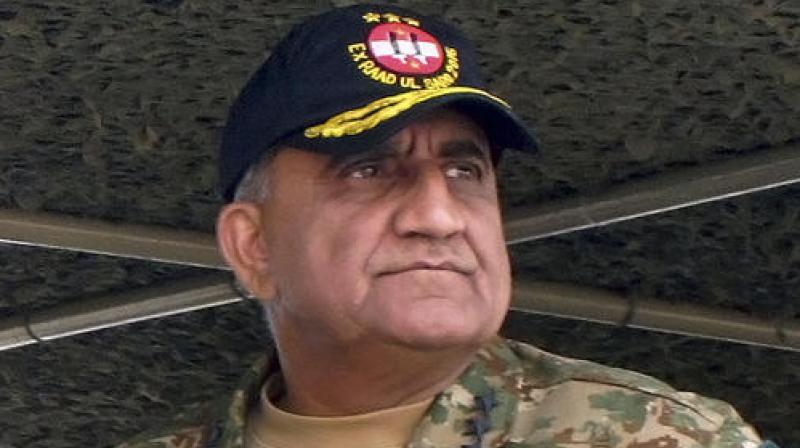General Bajwa meets Imran, crosses political line
As words and deeds reveal the Gen. Bajwa approach, the difference becoming evident is of style, not substance.

He arrived to the usual frenzy of curiosity, though some of it was unusual. The most powerful man in Pakistan. But Gen. Bajwa was more. Victim of an ugly hit job while still a candidate. Lampooned as Nawaz Sharif’s man when he got the nod. Architect of a soft purge as soon as Gen. Raheel was out of the door. And then silence.
It made sense. Gen. Raheel’s hyper visibility had caused unease among the senior lot and an adjustment was necessary by the successor. Plus, for bureaucratic reasons, a new chief takes a while to figure out the job and what he wants to do — or even all that he can do. Total power takes some time adjusting to.
Four months in, though, a more assured, more visible chief is increasingly speaking for himself and allowing surrogates to speak on his behalf. Take this business of meeting Imran Khan. Better to reveal it than not because if word got out later, a secret meeting would look much, much worse. Since they’re sticking to banalities, we can guess what it was about. Gen. Bajwa surrogates have been insisting that a resetting of frayed ties with Saudi Arabia and the UAE has been down to the new boss. They’ve been coy about what the problem was in the first place, specially with the UAE, but it doesn’t take much to figure out that Mr Khan’s mercurial bent necessitated the chief’s intervention.
There’s only one thing Mr Khan has talked about recently other than Mr Sharif: Gen. Raheel — and Pakistan tacking closer to Saudi Arabia. With Mr Sharif and Mr Khan at war, Gen. Bajwa couldn’t very well rely on a civilian persuading a civilian. So, to the extent that the policy is set and persuasion necessary, the Imran Khan meeting makes an institutional kind of sense. But let’s not kid ourselves: the chief has blithely crossed a political line. A meeting at this time and in this way — with Panama looming, and held in secret and revealed only later — suggests two things. Gen. Bajwa knew what it would look like. And he didn’t care what it would look like because what the chief needs of Mr Khan is more important.
You can bet by every last rupee you have that Mr Khan will have used the meeting to say a thing or two about Panama and corruption. The meeting itself has put him on an equal political footing of sorts with Mr Sharif — hey, look, the chief wants to talk to me! A Imran's no fool. And the PTI will know a gift when they see it. Like it or not, advertently or inadvertently, Gen. Bajwa has got his political toes wet. A familiar line has been crossed.
Like his immediate predecessors, Gen. Bajwa will know that intervention-as-the-norm is unnecessary and undesirable — do it too often and the civilians may start to get funny ideas about being a chief’s equal. What we must wait and see is how it’ll affect him. We know how it turned out with the predecessors. Gen. Kayani discovered he wanted to hang on and found a way to. Gen. Raheel discovered the same thing, but couldn’t find a way to. Four months in, has the countdown to 2018 begun?
To the familiar hypotheticals, a bunch of real stuff can be added. As words and deeds reveal the Gen. Bajwa approach, the difference becoming evident is of style, not substance. Gen. Kayani was a self-styled thinker. Gen. Raheel was a doer, to the point of exhaustingly so. But, in the big-picture, policy sense, Gen. Kayani and Gen. Raheel ended up the same. Afghanistan was a problem; India the enemy and the anti-State side of the militant apparatus had to be progressively dismantled.
Gen. Kayani and Gen. Raheel: different but same. Four months in, Gen. Bajwa is showing that he, too, may be different but same. The evidence is accumulating. If Mr Sharif is disappointed, he isn’t showing it.
By arrangement with Dawn

